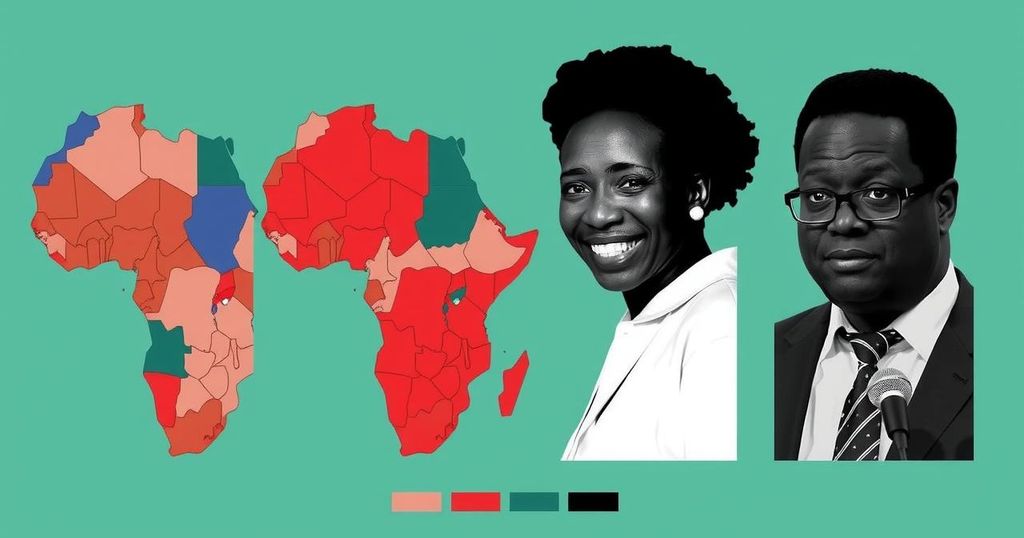In the 2024 elections, several African nations experienced significant political transitions. Ruling parties, such as Frelimo in Mozambique and the ANC in South Africa, faced major challenges, while Botswana elected an opposition leader for the first time. Conversely, President Kagame of Rwanda retained near-total control, and military-led governments in the Sahel postponed elections. The electoral landscape indicates a desire for change amid ongoing governance issues.
In the 2024 electoral cycle, over a dozen African nations held elections, showcasing a mix of outcomes for ruling parties. While some long-standing parties, such as Mozambique’s Frelimo and Comoros’ regime, maintained their grip on power through controversial means, others like Botswana witnessed a historic transition with the opposition coming to the forefront. The African National Congress in South Africa faced significant challenges, failing to secure an outright majority for the first time, thereby necessitating a coalition government. In contrast, Ghana and Senegal saw remarkable upsets with new leadership emerging amidst economic dire straits and political turbulence. Meanwhile, in regions like the Sahel, political stability remains elusive, as military juntas continue to delay elections, perpetuating their hold on power. Overall, the elections reflect a complex landscape where the struggle for democratic governance persists amid varied political climates across Africa.
The 2024 elections across Africa represented a critical period for numerous nations, highlighting ongoing tensions between ruling parties and opposition groups. The outcomes were varied; while some traditional leaders reinforced their authority, others faced significant losses, indicating a shifting political dynamic. In countries plagued by economic hardship or civil unrest, voters prioritized issues such as governance, corruption, and economic recovery. The trends observed suggest an evolving political landscape, where electorates are increasingly vocal about their dissatisfaction with longstanding regimes and are advocating for change.
The 2024 African elections delineated diverse political narratives, where established regimes either fortified their power or confronted unexpected electoral defeats. The emergence of new leaders in countries such as Ghana and Senegal underscores a growing demand for change among voters seeking solutions to pressing socio-economic issues. However, the persistent disruptions in nations like Mali and Burkina Faso reflect the ongoing struggles for democratic integrity in the Sahel region. In summary, these elections reveal a complex tapestry of political resilience and aspiration amid challenges in governance across Africa.
Original Source: www.voanews.com







